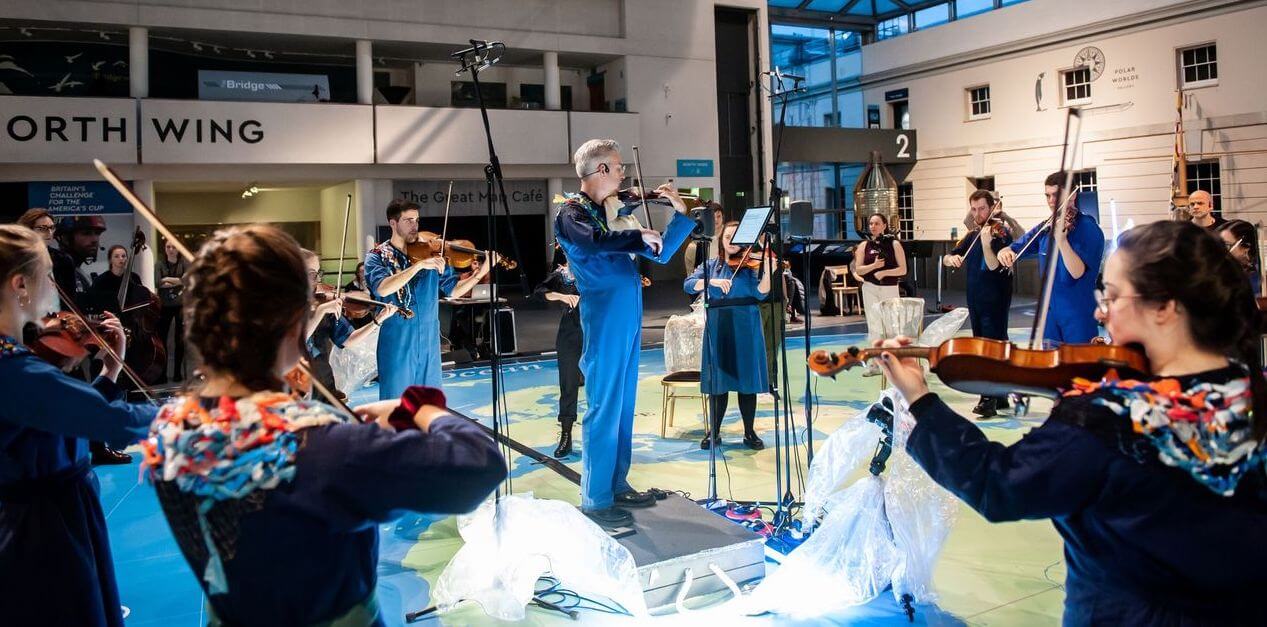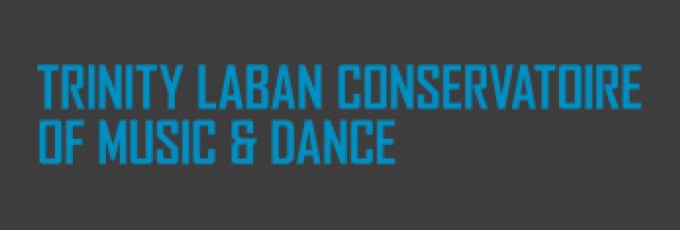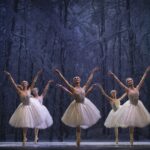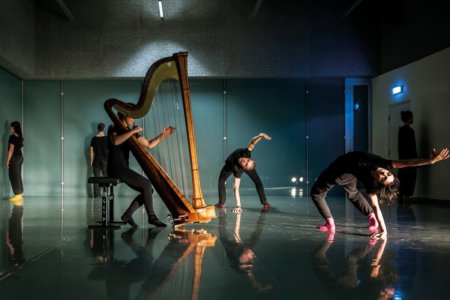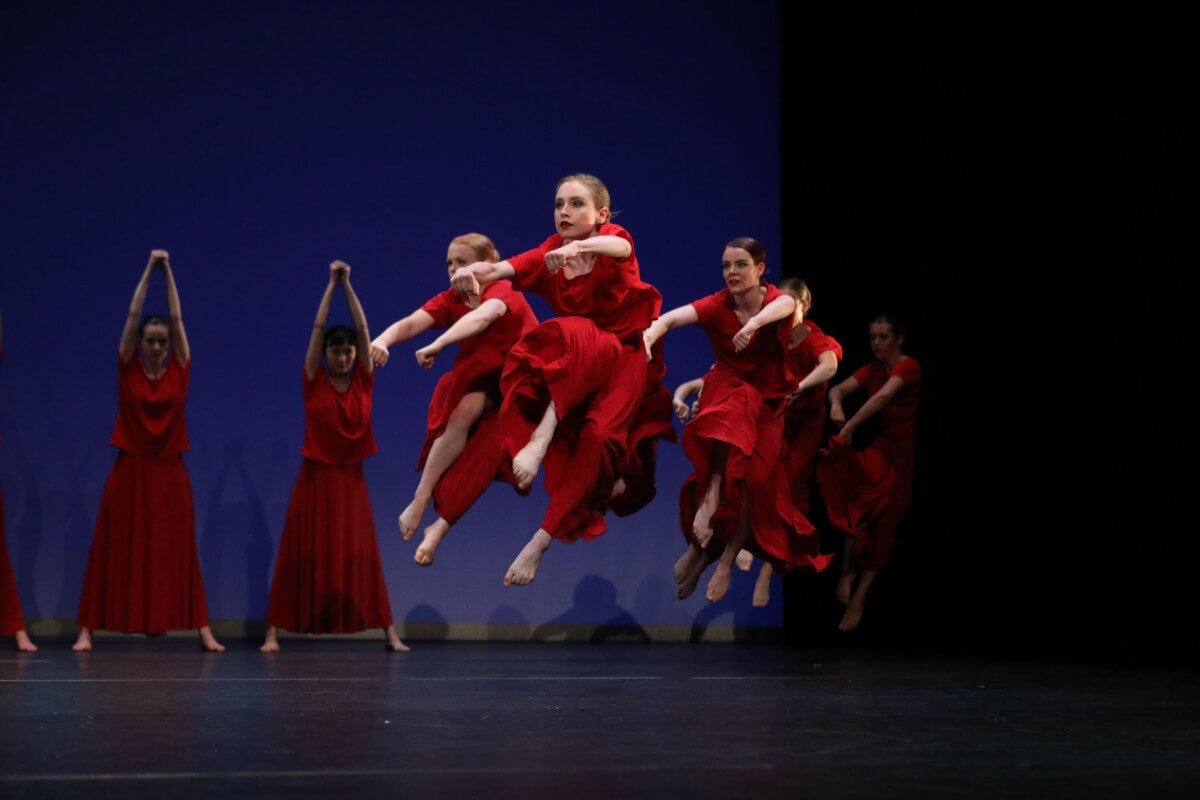It was love at first touch for Noelia Cotuna. She was just six years old when she first plucked a harp. Two years later, she was enrolled in a professional conservatoire in Valencia. After graduating in 2016, higher education was her next destination.
Determined to turn her passion into a profession, she attended a masterclass conducted by Gabriella Dall’Olio, an Italian-born harpist with a high-profile repertoire. A captivated Cotuna was sure she had found her mentor, so she auditioned to pursue a Bachelor of Music at Trinity Laban Conservatoire of Music and Dance, where Dall’Olio serves as Head of Harp Studies and Harp Chamber Music.
“Gabriella is such an inspiring teacher,” Cotuna shares. “She’s very passionate about what she does. Her lessons are not only tailored to you musically or technically, but she also cares about us so much as individuals. Watching her perform is even more inspiring.”
Personalised attention helped Cotuna find her confidence to follow in her mentor’s footsteps. In the annual Soloists’ Competition, she performed a piece she’s always longed to master — Henriette Renié’s Harp Concerto in C minor. “Noelia was the very obvious winner,” says Nic Pendlebury, Head of Strings.
Cotuna was awarded the 2019 John Marson Harp Prize for Outstanding Musicianship. Then, she was selected to attend the Karajan Academy as a student under the mentorship of renowned French harpist, Marie-Pierre Langlamet. Today, she is pursuing a master’s degree at a top university in Berlin with harpist Marion Ravot.

Strings students at Trinity Laban receive extensive coaching from both in-house staff and three visiting Carne Trust Ensembles. Source: Trinity Laban
Success stories like Cotuna’s are standard at Trinity Laban’s Strings Department. Several factors ensure students realise their artistic potential to secure fulfilling and sustainable careers in music. For starters, its performance programmes focus on chamber music and collaboration, developing both listening and social skills which are essential for the 21st century musician.
Expert guidance is offered throughout. Students receive extensive coaching from both in-house staff and three visiting Carne Trust Ensembles: the Smith Quartet, the Carducci Quartet and the Linos Piano Trio — each of whom grace the school twice a year to perform and conduct masterclasses. International ensembles like the Kronos and Kopelman Quartets as well as the Quatuor Mosaïques also visit Trinity Laban as guest artists.
Students immediately apply their newfound knowledge through performance, partaking in concert opportunities and chamber music competitions in a variety of settings. Trinity Laban even hosts an annual Chamber Music Festival which offers masterclasses, workshops, and competitions. It provides students with the opportunity to perform alongside their mentors.
Peter Fenech, a first year MMus postgraduate viola student says: “The programme has allowed me to really focus on my craft by giving me the opportunities to rehearse in more chamber groups, including performing as principal violist of the Trinity Laban String Ensemble.”
See Peter and the Trinity Laban String Ensemble performing Dvořák Serenade for Strings in E major Op.22 here:
Alongside chamber music, a wide range of performance opportunities are waiting to be explored such as TL’s symphony orchestra, string ensemble and contemporary music groups, and annual operatic and musical theatre productions.
Pendlebury is especially keen on his pupils experiencing “real world” orchestral playing. He has introduced a yearly cycle of side by-side projects with many of the UK’s leading orchestras, inviting their principal players to “sit in” with students.
“Those that have taken part in the scheme include the Philharmonia, the London Philharmonic Orchestra, the BBC Symphony and Concert Orchestras and the Welsh National Opera Orchestra,” he shares. “We also enjoy a bespoke relationship with the Bournemouth Symphony Orchestra where one of our graduates, Tom Beer, is Principal Viola. Each year, several of our students are invited onto projects, giving them a first-hand experience of playing within an internationally-acclaimed professional environment.”

Trinity Laban Strings alumni can now be found in many of the world’s top international orchestras. Source: Trinity Laban
In celebration of collaboration, the festival CoLab is held once a year as well. It enables students across music and dance disciplines to join forces for two weeks straight, designed to create and develop projects without interruption.
“It’s inspiring to see them build artistic relationships with performers across genres, disciplines and cultures, creating projects based on a wide variety of music and dance from Motown to Mozart, Vivaldi to Afrobeat,” enthuses Pendlebury.
Clearly, Strings students are never short of excitement. Even a pandemic couldn’t hold them back. Last year, the Strings Department formed the From My Room Orchestra, where students and staff held virtual performances from their homes.
“Our extensive programme of activity ensures all our Strings students receive the very best training,” explains Pendlebury.
It’s a rhythm that works — a fact proven by the success of its alumni. Trinity Laban Strings graduates can be found in many world-leading orchestras including the Berlin Philharmonic, the Moscow Soloists, and the Belgrade Philharmonic Orchestra. Closer to home, they captivate audiences as full-time members of the BBC Symphony Orchestra, the Liverpool Philharmonic and the Philharmonia, to name a few.
Others are now in celebrated ensembles including the Carducci Quartet and The Jubilee String Quartet. The solo careers of Stjepan Hauser of 2 Cellos, violinist Lana Trotovšek and harpist Claire Iselin also speak volumes. This is why Trinity Laban is consistently listed by the Higher Education Statistics Agency as one of the UK’s top institutions for graduate employability.
To take your pick from an expansive lineup of Strings programmes and apply for 2022 entry to London’s creative conservatoire, click here.

